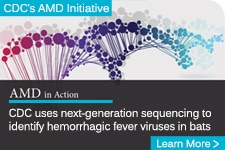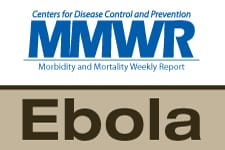Treatment
Therapeutics
There are currently two treatments* approved by the U.S. Food and Drug Administration (FDA) to treat EVD caused by the Ebola virus, species Zaire ebolavirus, in adults and children. The first drug approved in October 2020, Inmazeb™, is a combination of three monoclonal antibodies. The second drug, Ebanga™, is a single monoclonal antibody and was approved in December 2020. Monoclonal antibodies (often abbreviated as mAbs) are proteins produced in a lab or other manufacturing facility that act like natural antibodies to stop a germ such as a virus from replicating after it has infected a person. These particular mAbs bind to a portion of the Ebola virus’s surface called the glycoprotein, which prevents the virus from entering a person’s cells.
Both of these treatments, along with two others, were evaluated in a randomized controlled trial during the 2018-2020 Ebola outbreak in the Democratic Republic of the Congo. Overall survival was much higher for patients receiving either of the two treatments that are now approved by the FDA. Neither Inmazeb™ nor Ebanga™ have been evaluated for efficacy against species other than Zaire ebolavirus.
Supportive Care
Whether or not other treatments are available, basic interventions can significantly improve chances of survival when provided early. These are referred to as supportive care, and include:
- Providing fluids and electrolytes (body salts) orally or through infusion into the vein (intravenously).
- Using medication to support blood pressure, reduce vomiting and diarrhea, and to manage fever and pain.
- Treating other infections, if they occur.
*Disclaimer: The mention of any product names or non-United States Government entities on CDC Ebola websites is not meant to serve as an official endorsement of any such product or entity by the CDC, the Department of Health and Human Service, or the United States Government.

